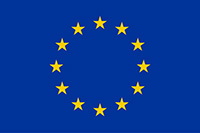What are Essential Features for an HR System in Growing Hospitality Companies?
Introduction
In the fast-paced world of hospitality, where staff turnover is high, it is crucial to manage HR processes efficiently and flexibly. A robust HR system needs to offer more than just personnel administration. Large hospitality businesses with multiple locations and hundreds of employees require a system that understands and supports this dynamic. Let’s explore the key features that an HR system for the hospitality industry must meet.
Streamline HR Processes for Contract Management
One of the biggest challenges in hospitality is the high frequency of contract changes. New employees come and go quickly, especially due to seasonal work and temporary contracts. A good HR system must streamline this process. For example, automated contract generation: by standardizing common employment terms, the system can effortlessly create new contracts. This saves time and minimizes errors in the process. Additionally, it’s important that an HR system generates these contracts in compliance with legal requirements, such as supporting chain regulation. This ensures that all contracts meet legal standards, avoiding any legal issues.
Autonomy for Locations
For hospitality businesses with multiple locations, it is important that each site has a degree of autonomy in managing their staff. Location managers should be able to hire new employees, manage schedules, and renew contracts. At the same time, headquarters must maintain control over critical decisions. An effective HR system offers a balance: locations have autonomy, but certain actions, such as salary increases or terminations, can only be executed after approval from headquarters.
Absence Management Without Disruptions
Absences due to illness, leave, or vacation are common in the hospitality industry. An HR system must ensure that processes don’t come to a halt when employees are temporarily unavailable. For example, the system should support the delegation of tasks to an assistant manager when a location manager is absent. The same applies to HR and other controlling functions at headquarters.
Employee Records
Managing employee data is another crucial factor in hospitality. With the high turnover of staff, keeping employee records up to date can be a challenge. A robust HR system automates the recording of data such as contracts, diplomas, and certifications. The system should not only ensure proper data storage but also comply with GDPR requirements, so all information is processed securely and in line with privacy regulations.
Integration with Payroll
An essential part of any HR system is its integration with payroll. New employees should automatically be added to payroll as soon as their contract is approved. This avoids time-consuming and error-prone manual input processes, ensuring accurate and efficient payroll processing. In an industry with frequent staff changes, this integration is a must-have.
Recruitment and Onboarding
Recruiting staff is a continuous process in hospitality. Therefore, a good HR system must seamlessly integrate with recruitment tools or even include a built-in recruitment module. This ensures that new candidates are automatically forwarded to the HR system once hired, without the need for manual data entry. This not only speeds up the onboarding process but also reduces the chances of errors in the hiring process.
Conclusion
Large hospitality companies need an HR system that allows them to streamline their personnel management without sacrificing control or compliance. From automated contract generation and payroll integration to flexibility for location managers with centralized control, a good HR system offers a solution to the dynamic nature and high turnover rates of the hospitality industry. Ultimately, a well-designed HR system ensures more efficiency, less administrative hassle, and a greater focus on what really matters: delivering excellent service to customers.
